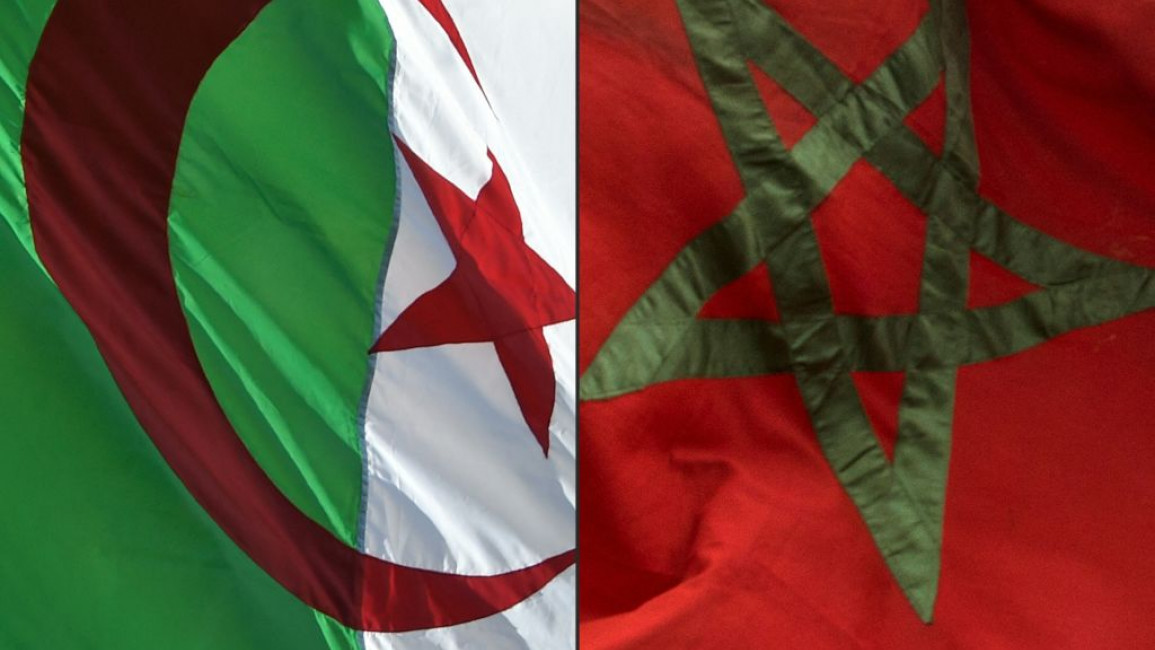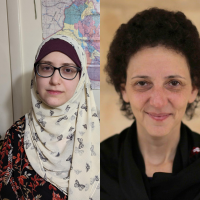
Algeria and Morocco at breaking point
Relations between Algeria and Morocco have long been tense, fiery, and punctuated by conflict. Since the 1963 "Sand War" over border demarcation, the leaders of these two major Maghreb powers have jostled for regional control. Both have encouraged the idea of an external enemy to feed their internal political agendas, opposed on all points, and to stir up patriotism to bolster national cohesion.
Since 1975, the competition for regional leadership has crystallised around the conflict over Western Sahara. The conflict led to a rupture in diplomatic relations between 1976 - 1988. In 1994, while it continued to rage, the Moroccan Minister of the Interior, Driss Basri, suggested the Algerian Secret Service had sponsored a terrorist attack on a hotel in Marrakesh that claimed the lives of two Spanish people. He introduced entry visas for Algerians and began a campaign to expel Algerians living without papers in Morocco.
Algeria responded by closing the land border between the two countries. Twenty-seven years later, despite pleas by Morocco's King Mohamed VI, the border remains closed, though an active trade in smuggled goods continues.
The failed diplomacy of Abdelaziz Bouteflika
The long-serving Algerian president Abdelaziz Bouteflika made several attempts to break the cycle of tensions and ruptures between the two countries. Shortly after his election in 1999, he attended the funeral of the Moroccan king Hassan II and spoke of his hopes for a Maghreb that could move beyond historical conflicts and work collaboratively for the development of the region.
He remained conscious, however, that he had been selected as head of state by the Algerian military, and that it was they who dictated the nature of relations with Morocco. His attempt to usher in a new diplomatic era was a balancing act in which he attempted to minister two opposing factions: his regular affirmations of Algeria's support for self-determination in Western Sahara, for example, could only anger the Moroccan political class.
"Despite a dramatically-changing regional environment, the two countries continue to vie for leadership of the Maghreb states, and each continues to view the other as an enemy rather than a neighbour"
In 2005, the Moroccan Ministry for Foreign Affairs cancelled a planned visit by the Algerian prime minister Ahmed Ouyahia, stating that declarations by Algeria were incompatible with the normalisation of relations between the two countries.
They were referring to a message of support addressed by President Bouteflika to the Polisario Front, supporting the right to self-determination of the people of Western Sahara. Since then, no Algerian prime minister has visited Morocco. This level of tension has become ingrained. Despite a dramatically changing regional environment, the two countries continue to vie for leadership of the Maghreb states, and each continues to view the other as an enemy rather than a neighbour.
The Washington, Tel Aviv, Rabat axis
On 20 December 2020, Morocco agreed to a normalisation of relations with Israel in return for US recognition of Moroccan sovereignty over Western Sahara. This created a new imbalance in the relationship between the two North African states, in effect, signalling failure for Algeria, which has been equipping the Polisario Front since 1975.
While the Biden administration has not confirmed this recognition of sovereignty, and the EU has maintained a diplomatic silence on the matter, Algeria knows it is only a question of time before Morocco's claims on the territory are recognised, in defiance of the conflict-resolution process that has been taking place at the UN since 1991.
|
|
This defeat will mean the end of any power for Algeria over its rival. Morocco's political priorities will no longer focus on leading the Maghreb, but on increasing its influence in Africa as a whole. The normalisation of relations with Israel will give it the means to pursue this new ambition.
By helping Israel regain status as an observer in the African Union (AU) (that it lost in 2002), a move that Algeria sought to prevent by reminding AU members that the group had always supported the Palestinian cause, Morocco has shown its capacity to influence the pan-African body. By using this, as well as its influence in Western Africa, to aid its new ally, Rabat hopes to profit.
For Israel, observer status as part of the AU constitutes a first step towards geo-strategic deployment in Western Africa. In return for its help, Morocco hopes to benefit from major Israeli investment, well beyond the forecasted $590m.
"By helping Israel regain status as an observer in the African Union (AU), Morocco has shown its capacity to influence the pan-African body"
It also hopes to build on the existing security cooperation between the two states, recently exposed via revelations of Morocco's use of the surveillance software Pegasus. Produced by the Israeli company NSO Group, this software allowed the Moroccan state to target over 6,000 telephone numbers, including those of Algerian politicians.
Despite this now-overt affinity between Rabat and Tel Aviv, Morocco knows that, despite official declarations, Mohamed VI, president of the Al-Quds Committee, has no chance of reorienting Israeli policy in favour of the Palestinians.
A visit to Rabat on 13 August 2021 by the Israeli Minister for Foreign Affairs, Yair Lapid, coincided with the decision of his country to press ahead with the construction of a new ramp to connect the Wailing Wall with the Esplanade of the Mosques and the Dome of the Rock.
Neither Israel nor the US has yet opened a consulate in Western Sahara. Washington is, in fact, still speaking in terms of a "solution to the conflict in Western Sahara through the United Nations and in consultation with those involved".
Civil society in Morocco, Algeria urge 'reason' after ties cuthttps://t.co/IcKkOSejwZ
— The New Arab (@The_NewArab) September 5, 2021
While determined to maintain their existing policy towards Palestine, Israeli politicians have been prepared to favour Morocco by stigmatising its old enemy. During the same visit, Yair Lapid told his opposite number, Nasser Bourita, that he was "concerned about the role played by Algeria in the region, the closeness between Algeria and Iran and the campaign led by Algeria against the admission of Israel as an observer on the AU".
The Algerian government reacted angrily to what it called "ludicrous accusations and barely-veiled threats," and the Algerian Minister for Foreign Affairs, Ramtane Lamamra, declared that "not since 1948 have we heard a member of the Israeli government issue threats against an Arab country from the territory of another Arab country."
'The brave Kabylie people'
The breaking of diplomatic ties between Algeria and Morocco, announced on 24 August 2021, marked the culmination of an escalation of tensions that began with the announcement of the normalisation of relations between Morocco and Israel in December 2020.
The summer of 2021 was punctuated by a series of spats: a month after the remarks of Yair Lapid, during a meeting of the Non-Aligned Movement in New York on 13-14 July, the Moroccan Ambassador to the UN, Omar Hilale, distributed a memo stating that "the brave Kabylie people deserve, more than all else, to freely enjoy their right to self-determination."
The Algerian Minister for Foreign Affairs responded by saying, "Moroccan provocations have attained their peak."
It was in the wake of these two incidents that Algeria's High Council for Security, led by the head of state, decided on 17 August to "review" the country's relations with Morocco. Tensions were at their height, with Algeria accusing Morocco of supporting the Movement for Self-determination in Kabylie (MAK in its French acronym) and of being implicated in fires in the region. Algeria's decision will result in increased security controls along its western frontier.
"The Algerian Minister for Foreign Affairs responded by saying, 'Moroccan provocations have attained their peak'"
Algiers has demanded that Morocco clarify the intention of the Ambassador's memo. King Mohamed VI offered no denial, and waited until Throne Day on 31 July to make his statement that, "Algeria need not fear any ill will on the part of Morocco."
Reacting to the announcement of the breaking of ties on 24 August, the Moroccan Minister for Foreign Affairs said in a statement that he regretted the decision, which he said was "completely unjustified by Algeria… the Kingdom remains a credible and loyal partner to the Algerian people and will continue to act with wisdom and responsibility for the development of healthy and fruitful inter-Maghrebian relations."
These words appear to be intended to signal to Morocco's allies in the West and Tel Aviv that, while the kingdom is serious and trustworthy, Algeria is unstable. It is a message addressed in particular to those states that fear military escalation and its effects, notably the effects on Algerian gas supplies to Europe.
Paris, Cairo, and Riyadh have already offered their services as intermediaries between Algiers and Rabat. Following the rupture in relations, Algeria might indeed be tempted to play its one remaining card, by modifying the routing circuit of its gas supplies to Europe. The contract for the Maghreb-Europe Gas Pipeline which links the Algerian gas fields with Spain via Morocco expires on 31 October. Morocco has expressed its desire to renew the contract, but the Sonatrach Petroleum Corporation could offer an alternative that shifts transportation to the Medgaz line, which links Algeria directly with Spain.
Khadija Mohsen-Finan is a political scientist at the University of Paris 1 and a researcher attached to the Sirice project studying European identities, international relations and civilisations. Her recent publications are Tunisie, L'apprentissage de la démocratie 2011-2021 (Nouveau Monde, 2021), and (with Pierre Vermeren), Dissidents du Maghreb (Belin, 2018). She is a member of the editorial team of OrientXXI.
This article was originally published by our friends at OrientXXI.
Have questions or comments? Email us at editorial-english@alaraby.co.uk
Opinions expressed in this article remain those of the author and do not necessarily represent those of The New Arab, its editorial board or staff.

![Moroccan army vehicles drive past car wreckages in Guerguerat located in the Western Sahara. [Getty]](/sites/default/files/styles/medium_16_9/public/2021-09/GettyImages-1229770557.jpg?h=16f2671a&itok=LhBU8bGQ)



